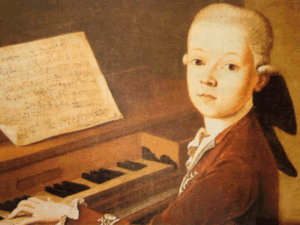Are you born talented — or trained?
 Pablo Picasso said that, “Every child is an artist. The problem is staying an artist when you grow up.” Is it age that nullifies our artistic tendency, or is it the acceptance we desire for that which we create?
Pablo Picasso said that, “Every child is an artist. The problem is staying an artist when you grow up.” Is it age that nullifies our artistic tendency, or is it the acceptance we desire for that which we create?
I’ve always believed that creatives are not creative in only one genre. I do believe that creative people weave that ability into every aspect of their lives.
I met a pianist who works in an art gallery, and when he travels on the road to deliver his music to people all over the world, he incorporates other arts into his performances (i.e., ballet, art, video). That urge to create has spilled over into all other parts of his life.
In my own life, I’ve made my living as a writer for years, but I also work with mosaics, I find myself dying to paint, and even my cooking becomes more creative than the average home cook’s. (I’m not saying I’m good at all the other creative genres, but I am attracted by them.)
Everyone who has heard of Michelangelo knows that he not only painted and sculpted, but he invented, and he was a poet, as well. His work inspires us all with its unique attention to physical detail, and though some might argue that his realistic statues are not creative, because they are so real, they’re almost human, I believe most would agree that his work defines creativity.
I watch my grandson at 5 years old learning to draw, to mix colors, to create simple sculptures (like paper airplanes), and he’s pure joy. I wonder when his teachers will school the love for art out of him, and that frightens me. So many potentially brilliant artists have the love of the art (music, dance, writing) destroyed when a well-meaning teacher (or other adult) says, “That line is wrong, honey,” or “You can’t use those two colors together.” Or, even worse, grades the work according to their own opinion. That is the day the light goes out.
Okay, I hear you saying that eventually the creatives need training. I understand. Without knowledge of grammar, I would not be able to write. Without an understanding of color, an artist cannot paint. Without the notes on a scale, a musician is unable to write music. Or can they?
A true creative takes what’s on hand and invents or innovates something new. Do you need training for that? Yes and no. There’s a difference between training and encouragement.
My belief is this: if parents and teachers encourage children who love the arts at a young age, the creativity will be fostered. Let them find their way in the crayon box. Let them play for hours on a piano or a set of drums. Put an apron on them, get them a stool, and let them dig their fingers into bread dough to learn to cook. Tell them what they’re doing is making you happy. Describe their work in emotions—how it makes you feel—rather than asking them to create the “right way.” For there is no correct way to create.
We adult creatives know all too well that there are more negatives in this creative life than positive, more people will tell you ‘no’ rather than ‘yes,’ more will judge the work depending upon their own opinion. Our expectations often shut us down. The creativity disappears when one must work to others’ definition of what it’s worth.
To benefit from all the wonderful, beautiful, amazing, and breathtaking works that creatives give to us, we must begin at the beginning. So, give that child a box of paints, a keyboard, room to dance, a pot to cook in, and let them go. There’ll be plenty of time for the training that will help them shape their love of art/music/dance/literature. For now, let them be that artist.
Peace.
One Comment
MARION W OMALLEY
love this, Dawn. Will share.